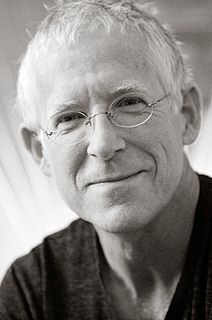A Quote by David Hume
The minds of men are mirrors to one another, not only because they reflect each other's emotions, but also because those rays of passions, sentiments and opinions may be often reverberated, and may decay away by insensible degrees.
Related Quotes
... whatever men do or know or experience can make sense only to the extent that it can be spoken about. There may be truths beyond speech, and they may be of great relevance to man in the singular, that is, to man in so far as he is not a political being, whatever else he may be. Men in the plural, that is, men in so far as they live and move and act in this world, can experience meaningfulness only because they can talk with and make sense to each other and to themselves.
One of the most sublime and hazardous moments in human experience comes when two people lock eyes and realize that they are sexually attracted to one another. They may not act on the knowledge.They may file it away for future reference. They may deny it. They may never see each other again. But the moment has happened, and for an instant all other considerations are insignificant.
You and I have formerly seen warm debates and high political passions. But gentlemen of different politics would then speak to each other and separate the business of the Senate from that of society. It is not so now. Men who have been intimate all their lives, cross the streets to avoid meeting, and turn their heads another way, lest they should be obliged to touch their hats. This may do for young men with whom passion is enjoyment. But it is afflicting to peaceable minds. Tranquility is the old man's milk.
I agree with you, Mr. Chairman, that the working men are the basis of all governments, for the plain reason that they are the more numerous, and as you added that those were the sentiments of the gentlemen present, representing not only the working class, but citizens of other callings than those of the mechanic, I am happy to concur with you in these sentiments, not only of the native born citizens, but also of the Germans and foreigners from other countries.
For if Men are to be precluded from offering their Sentiments on a matter, which may involve the most serious and alarming consequences, that can invite the consideration of Mankind, reason is of no use to us; the freedom of Speech may be taken away, and dumb and silent we may be led, like sheep, to the Slaughter.
May all beings everywhere plagued with sufferings of body and mind quickly be freed from their illnesses. May those frightened cease to be afraid, and may those bound be free. May the powerless find power, and may people think of befriending each other. May those who find themselves in trackless, fearful wilderness- the children, the aged, the unprotected- be guarded by beneficent celestials, and may they swiftly attain Buddhahood.
The circumstances of the world are continually changing, and the opinions of men change also; and as government is for the living, and not for the dead, it is the living only that has any right in it. That which may be thought right and found convenient in one age, may be thought wrong and found inconvenient in another. In such cases, who is to decide, the living, or the dead?









































